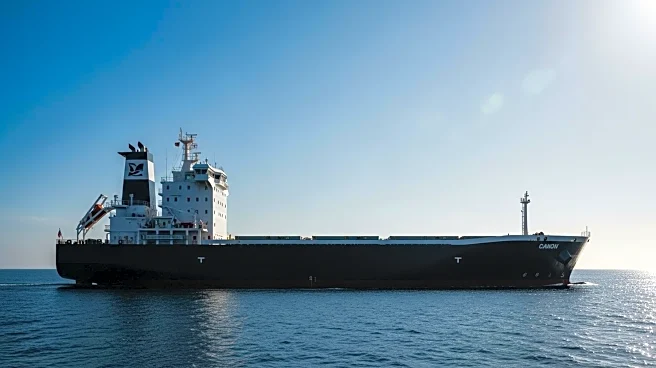What's Happening?
Maersk has embarked on a significant retrofit program aimed at reducing fuel and operating costs, as well as emissions, for its fleet of chartered containerships. The initiative involves collaboration with 50 shipowners and encompasses over 1,500 individual projects across 200 vessels. The program includes modifications such as replacing propellers and bulbous bows to enhance hydrodynamic efficiency, and installing auxiliary engine waste heat recovery systems. These efforts are part of Maersk's broader goal to cut absolute scope 1 greenhouse gas emissions by 35% by 2030, compared to 2022 levels.
Why It's Important?
This initiative is crucial as it aligns with global efforts to reduce carbon emissions in the shipping industry, a significant contributor to greenhouse gases. By improving fuel efficiency and reducing emissions, Maersk not only enhances its environmental credentials but also positions itself competitively in a market increasingly focused on sustainability. The program's success could set a precedent for other shipping companies, potentially leading to industry-wide adoption of similar practices, thereby amplifying the environmental benefits.
What's Next?
Maersk plans to complete an additional 1,000 projects by 2027, further advancing its emission reduction goals. The company is also exploring the conversion of existing vessels to dual-fuel methanol capabilities, which could further decrease its carbon footprint. As the shipping industry faces increasing regulatory pressure to decarbonize, Maersk's proactive measures may influence policy developments and encourage other companies to adopt similar strategies.










